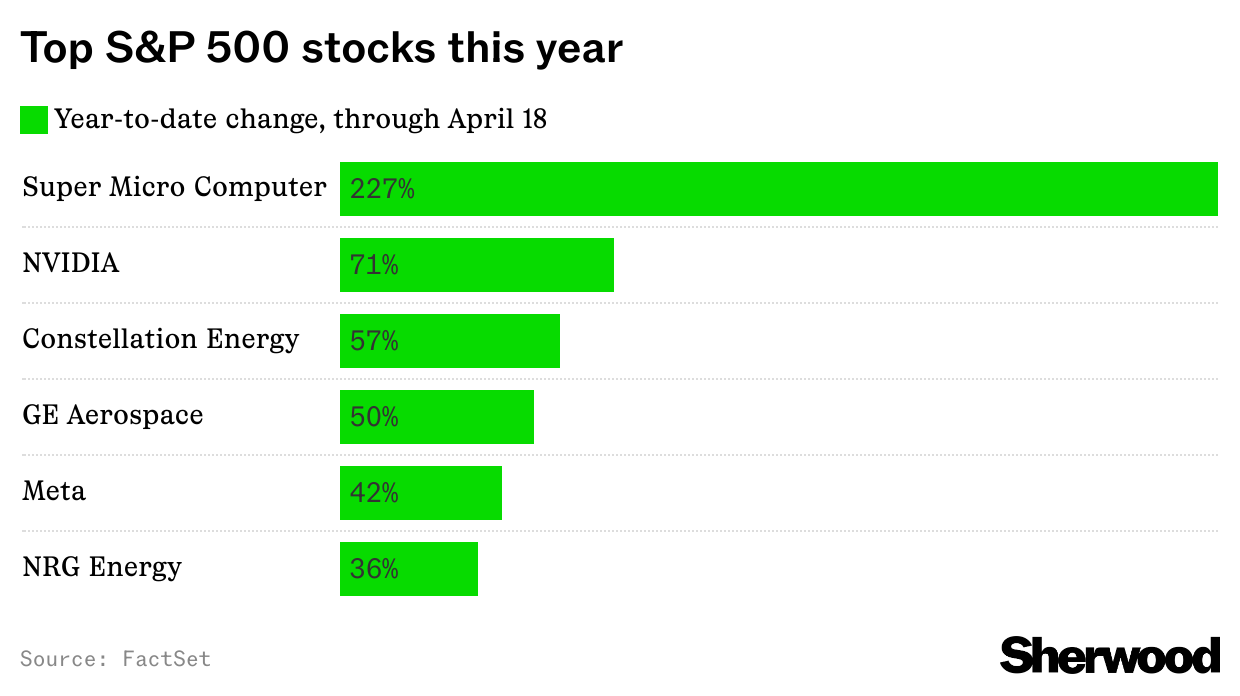Monday Aug.30, 2021
🏦 What the SPAC
_Chewy earnings call: Zoom face ready [Justin Paget/Stone via GettyImages]_
Hey Snackers,
Swiss farmers are airlifting cows to help them migrate to the mountains. Weather forecast: cloudy with a chance of milk rain.
Stocks jumped for the week, with the tech-heavy Nasdaq index gaining nearly 3%. At the big Fed meeting on Friday, Chairman Jerome Powell said the central bank could begin rolling back its economy-boosting money policy this year.
SPAC-y
SPAC popularity has grown, along with scrutiny of the IPO alternative
SPAC at it again... Since last year, special purpose acquisition companies have dominated the public market. SPACs go public for the sole purpose of one day acquiring a real company and taking them public. DraftKings, Virgin Galactic, and Opendoor all went public by merging with SPACs. Wild stat: SPACs have accounted for ~70% of all IPOs in 2021. So far this year, SPACs have raised a record-breaking $129B — already more than they raised in 2020. But as SPAC popularity has grown, so has scrutiny:
- SPAC lawsuits have tripled this year, including against billionaire Bill Ackman’s SPAC. Many cases involve allegations of misleading investors.
- Short-selling firms have increasingly scrutinized companies that went public via SPAC. The CEOs of e-truck startups Nikola and Lordstown resigned after a short-selling firm alleged they exaggerated their tech and misled investors.
- SPACs tend to lose a third of their value post-merger on average, according to a study spanning 2019 to 2020. The 50 biggest SPACs have lost 20% in value this year.
Not always SPAC-tacular… SPACs offer a faster, and sometimes cheaper, way for companies to go public. A SPAC merger usually happens in three to six months on average, while an IPO can take 3X to 4X longer. Companies that go public via SPAC are also allowed to make sales projections to prospective investors, while IPO companies can’t. Plus, SPACs can sometimes help companies avoid initial mispricing. But with increasing scrutiny of SPACs, we may see more regulation in the future.
SPACs can be a double-edged sword… SPACs’ advantage — a faster, more frictionless path to going public — might also be their weakness. Companies that go public via SPAC sometimes face less oversight than those that IPO. Meanwhile, newly-public SPACs may not be able to provide as many disclosures to investors since their acquisition target has yet to be named, and financial diligence may be narrower. But all investments carry risk – and even the IPO review process, designed to help protect investors, isn’t a guarantee that companies' disclosures are completely accurate.
Zoom Out
Stories we're watching...
The Delta effect... Pfizer's Covid vaccine received the first full FDA approval last week, with Moderna's expected next. The official greenlight could boost vax confidence — and sales. President Biden wants Americans to get booster shots this fall. Meanwhile, more employers are using “sticks” instead of carrots: CVS, Chevron, and Disney mandated employee vaccination, and Delta is hiking health insurance premiums for unvaccinated workers. But some countries — many in Africa — are still waiting to get their first vaccines.
Equal and opposite rehack-tion... Google and Microsoft committed $30B to improve national cybersecurity at President Biden’s summit last week. This month, hackers stole sensitive data on 50M T-Mobile customers in a major cyberheist — the company’s third in two years. Global cybercrime losses skyrocketed to nearly $1T in 2020, and the cybersecurity market is expected to more than double between 2021 and 2028.
Events
Coming up this week...
Keep the e-kibble crunching... Chewy's sales soared 47% last year as its 19M pet parents ordered goodies online for their pandemic pups. Now, Chewy hopes its popular recurring Autoship feature – for everything from Star Wars toys to pup puzzles – will keep online sales strong as in-store browsing returns. We’ll see how pet parents feel when Chewy reports earnings Wednesday.
Zoom face ready… Zoom's sales last quarter more than tripled from last year thanks to all our WFH'ing. Since most companies are planning on hybrid workforces, Zoom could lose business to the IRL office life. But as many employers delay return-to-office dates, Zoom might not be sweating when it reports its latest earnings today.
ICYMI
Last week's highlights...
- Uber: A CA judge ruled that Prop 22 is unconstitutional — now the future of the gig economy is up in the air (again).
- Tap: TikTok and Instagram are launching in-app shopping tools to make impulse purchases even easier.
- WFH: Nine in 10 companies plan to leverage a hybrid working model — to make remote feel closer, Salesforce is betting on Slack.
What else we’re Snackin’
This Week
- Monday: Earnings expected Zoom
- Tuesday: Earnings expected from NetEase and Crowdstrike
- Wednesday: Earnings expected from Chewy, Okta, Asana, Campbell Soup Company, Five Below, and Vera Bradley
- Thursday: Weekly jobless claims. Earnings expected from Broadcom, DocuSign, Hormel, and American Eagle Outfitters
- Friday: August unemployment rate
Authors of this Snacks own shares of: Microsoft, Uber, Delta, Nikola, CVS, Disney, Moderna, Netflix, and Google
ID: 1819443
.png)

